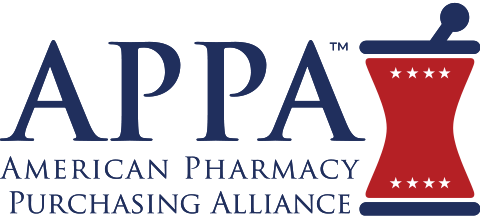Physicians didn’t spend long years in school to have two-thirds of their work-day be comprised of data entry task.
Pharmacists didn’t spend long years of school to have two-thirds of their work-day consist of filling and dispensing medications.
Both professions went to school so that they can perform at the top of their license and modernize today’s healthcare era; bringing revolutionary solutions to the healthcare industry. It’s already apparent that we prefer to avoid the administrative burden, as it disrupts our workflow and takes time away from spending with the patient.
Our reimbursement model has changed and went from fee for service to now value-based care.
Physicians are the Medicine experts, while Pharmacists are the medication experts. Both professions are considered predominant healthcare leaders in the industry.
Physicians are the first point of contact to diagnose and assess appropriately, while Pharmacists are the last line of defense to verify that the appropriate treatments were prescribed.
It’s clear that both professions possess a high pedigree of clinical knowledge.
Why do we separate the two entities, instead of bringing them closer together?
Primary-care physicians, participation in a care-team program can ease the burden associated with the management of complex-care patients. It also provides a way to better manage the cost of these patients by optimizing their health and functional status, decreasing excess healthcare use, minimizing emergency department visits and other hospital utilization (including readmissions), and preventing long-term nursing home placement.
What’s going on in the Physician private practice world, is also going on in the pharmacy private practice world.
According to the American Medical Association, less than half of physicians own their medical practice. “First-time ever” its been this low.
According to the NCPA (National Community Pharmacist Association) digest report, there has been a steep drop in independently owned pharmacy practices compared to previous years.
Ownership and employment shifts reflect the industry’s increasing compliance costs and new payment models.
Health systems have been aggressively mopping up the physician practices, while the Large-chained pharmacies have been aggressively mopping up the small mom and pop independent pharmacies.
The common reasons shared for selling their practice:
- Low reimbursements
- High overhead cost
- Burnout
- Increased competition by bigger players
- Lack of innovation
With the collaboration of Physician and Pharmacy private practices, it can help eradicate a bulk of the problems both professions face and help revolutionize healthcare.
Ways a Pharmacist can help improved value-based care models for Physicians:
- Disease-state management therapy– Most physicians are trained only to know the contraindications of medications for individual disease states. Where they may lack is the Pharmacokinetics/Pharmacodynamics profile, Medicinal chemistry, and the robust intelligence of clinical literature of drugs in certain classes. All of these small intangible things relating to a drug have a significant impact on its effectiveness.
- Primary care Pharmacist plans– Yes, Pharmacist can provide care plans. A clinical pharmacist can also put together a care plan to better assess the patient and provide useful treatment recommendations for the Physicians review. This can help reduce the administrative task physicians may have to deal with, which in return allows the physician to spend more time with their patient to go over the pathophysiology of their condition.
- Pharmacoeconomics– the Pharmacist, have the due-diligent training to evaluate the cost and effectiveness of a pharmaceutical agent against another. This can be referred to as a cost-benefit analysis. Hence, pharmacoeconomics can help guide optimal healthcare resource allocation and provide more buy-in from Insurance companies.
How can a Physician be of aid to a Pharmacist:
- Pathophysiology– Physicians are experts and well-trained in the pathophysiology of a patient. This is knowledge pharmacist may lack the substance of knowledge in pathophysiology. Physicians are sharply intelligent in diagnosis criteria’s and general assessment of a patient.
- Medical Knowledge– Physicians have the medical knowledge to help consult with patients on preventative skills to live a more proactive healthy lifestyle. The more time the Physician has with the patient, the better the outcomes.
In hindsight, Physician & Pharmacist collaboration has the potential to create a robust HealthSystem for patients and also produce a stronger buy-in from insurance companies.
Population health is the current and future trend of healthcare. We can start synergizing our talents and bring out the best in value-based care practice models.
The more prominent players are already adopting vertical integration strategies to help create a more user-friendly and efficient healthcare system. Why can’t we?
In essence, “we have to STOP advertising and START innovating.”

